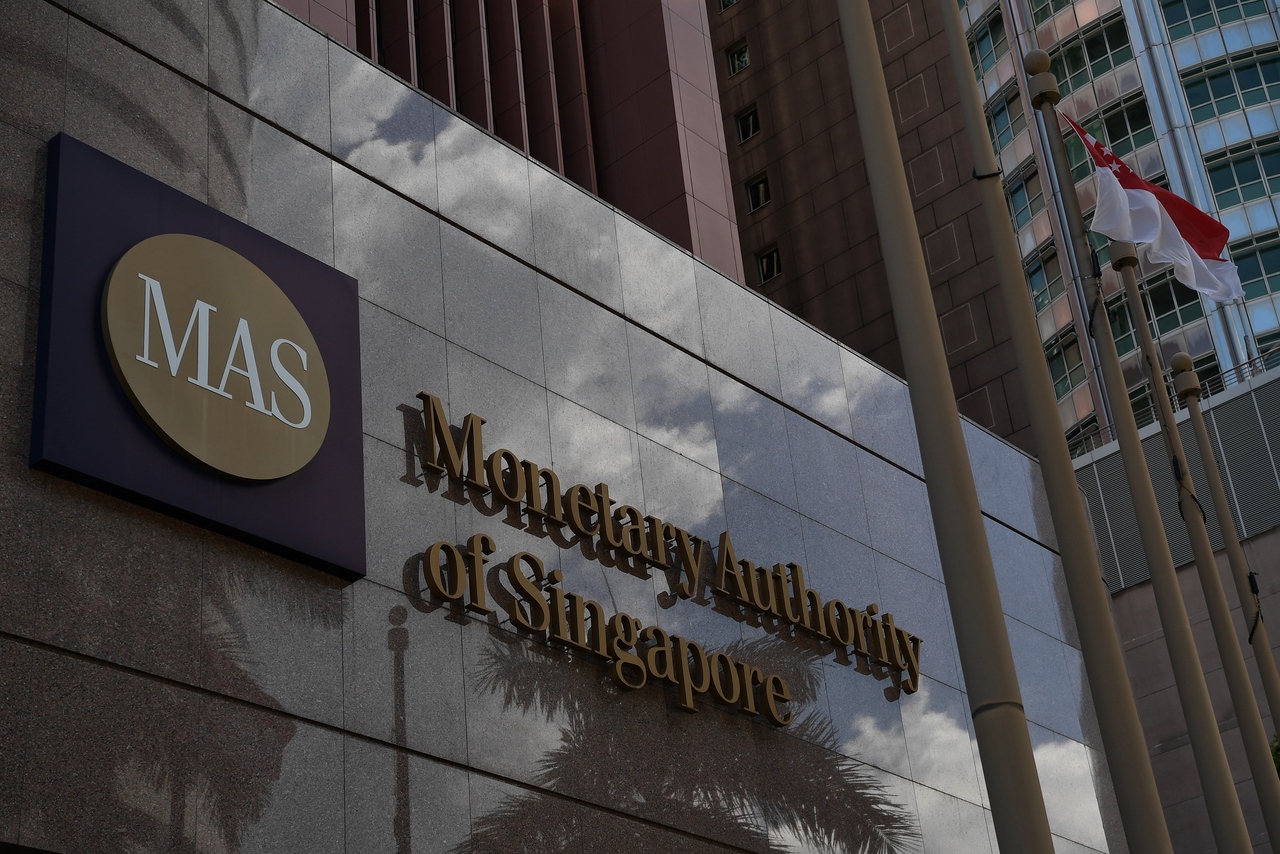MAS to help people, firms ease dependence on relief measures
It is discussing with banks how borrowers can gradually resume loan repayments
Sign up now: Get ST's newsletters delivered to your inbox

Mr Menon said that it is time to study how best for companies and individuals to start making their repayments.
ST PHOTO: KUA CHEE SIONG
Having ridden to the rescue of companies and individuals during the coronavirus crisis, the central bank has started planning a soft landing for them when the relief measures are rolled back by the end of this year.
It has started discussing with banks how borrowers can gradually resume repayments to them. At the height of the crisis, the Monetary Authority of Singapore (MAS) had thrown such cash-squeezed businesses and individuals a lifeline by allowing them to defer repayments.
Observers said a good exit policy from the relief measures was important as it could otherwise lead to many borrowers defaulting on loans.
Speaking at the release of the central bank's annual report yesterday, its managing director Ravi Menon said that the relief measures implemented during the pandemic have done their part to help companies and individuals stay afloat.
But bank loans and insurance policy premiums eventually have to be paid, he said. What MAS was doing was to discuss with banks and insurers how to ease borrowers and policyholders into gradually resuming repayments when the relief measures, which include debt moratoriums on mortgage payments, finally draw to a close.
"We will not have a cliff effect - which means it is not as if all will be withdrawn on Dec 31," he said.
"I (also) don't think we can continue (providing) these reliefs indefinitely because the longer you continue them, the more at risk some of these borrowers will be in terms of repayment," he added.
Outlining the scale of the relief operations, he said that banks have deferred payments on principal or interest, or both, on about 34,000 mortgage loans until Dec 31. They have also deferred both principal and interest payments on more than 2,100 renovation and education loans.
Meanwhile, more than 25,000 life and health insurance policyholders have deferred their premiums while maintaining coverage.
Payment deferments have also been made on more than 5,300 small and medium-sized enterprises' secured loans. "But deferred payments provide only temporary relief and come with longer-term costs," he pointed out.
Mr Menon said the central bank aims to announce the results of its analysis with the banks by October to give debtors time to prepare for their repayments.
Singapore Business Federation chief executive Ho Meng Kit agreed that businesses must accept that at some point banks would cut back on the financing available to them. "Unwinding a pile of bad debt later can cause other problems for the economy," he noted.
"We hope MAS... will provide businesses with adequate notice and a glide path on the withdrawal of the relief measures," said Mr Ho.
CIMB Private Banking economist Song Seng Wun echoed this sentiment, saying that banks may face a higher number of defaults if people were pressured into paying larger amounts of debt that have accumulated over the moratorium period. Debtors may also run into more financial issues if they are not given the information to prepare for a repayment schedule, he said.
Association of Small and Medium Enterprises president Kurt Wee hopes that MAS "will not wind down help" and extend the existing relief measures.
"Businesses will continue to require the support of MAS for the duration that we are impacted by Covid-19," he added.
"If there is a departure from the current pre-election measures, businesses will find the adjustment overwhelming because they are already subjected to tremendous restrictions to how far they can operate their businesses," Mr Wee said.
CIMB's Mr Song added that MAS' discussions with banks on repayment by borrowers would lift some uncertainty over the issue.
"Individuals will have more information so they can start planning, and banks will have a better idea on who can repay their loans on time and who needs more help," he said.
"All this information will save the central bank some headache."
This article has been edited for clarity.


